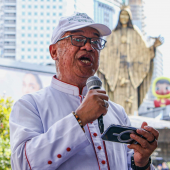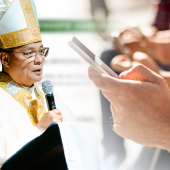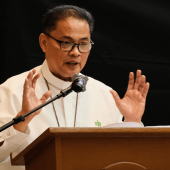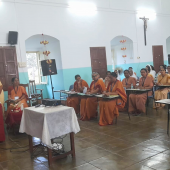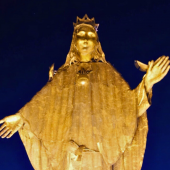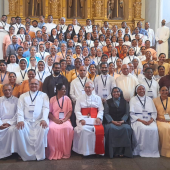Philippine Catholic bishops warn of nation’s ‘bleak political landscape’
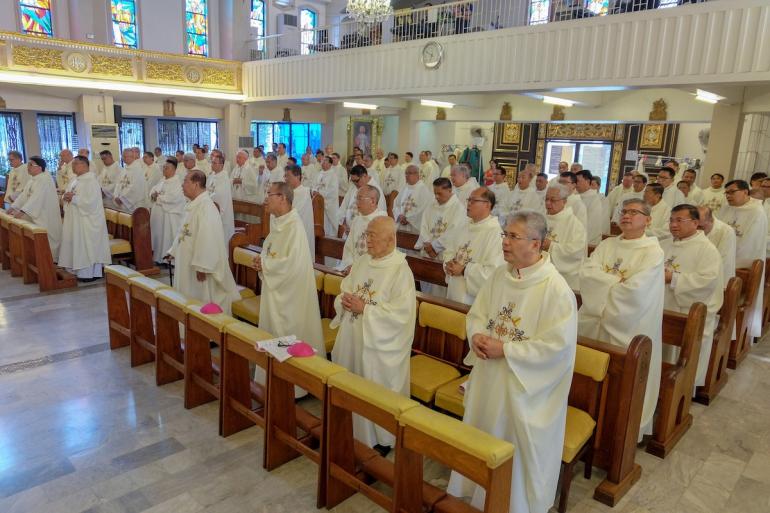
The Catholic Bishops’ Conference of the Philippines warned the faithful of a “bleak political landscape” for the nation as the country’s new anti-terrorism law took into effect.
“While a semblance of democracy is still in place and our democratic institutions somehow continue to function, we are already like the proverbial frog swimming in a pot of slowly boiling water,” read the bishops’ pastoral letter released on Sunday, July 19.
Republic Act 11479 or the Anti-Terrorism Act of 2020 took effect midnight of July 18 even in the absence of implementing rules and regulations.
The country’s Catholic bishops likened the Philippine situation to that of Hong Kong where people are protesting against a new National Security Act imposed by China.
“Like [the people of Hong Kong], we are also alarmed about the recent signing into law of the Anti-Terror Act of 2020,” said the bishops.
The Philippine bishops expressed “disbelief” over the manner in which the “contentious” anti-terror bill was passed into law in Congress.
“[The legislators] did not even seem to care that many of the people they represent were against it,” added the prelate.
In their two-page pastoral letter, the bishops noted that dissenting voices were strong “but they remained unheeded.”
“Alas, the political pressure from above seemed to weigh more heavily on our legislators than the voices from below,” added the bishops.
The church leaders said many elements of the new law are “oppressive and inconsistent with our Constitution” and pose a “serious threat to the fundamental freedoms of all peaceful Filipinos.”
Like in Hong Kong, Philippine authorities have earlier dismissed these fears as “unfounded” and assured that Filipinos have nothing to fear if they are not terrorists.
The bishops, however, enumerated instances that undermined the government’s assurance.
“Have we not heard of people active in social advocacies who are accused of being communists?” they asked.
“Have we forgotten the bishops, priests and religious who were included among those falsely charged [by the police] with crimes of sedition and inciting to sedition?” added the bishops.
“Are we not aware of the thousands of people who have been killed in police operations on the basis of mere suspicion of involvement in criminality and illegal drugs?”
“Have we not heard of media personalities being harassed by a multitude of criminal charges?”
The bishops cited the closure of the television network ABS-CBN after failing to get a new broadcast franchise from the government.
“Have we not felt the chilling effect of the closure of the country’s biggest broadcast network, the ABS-CBN, after being denied renewal of its franchise?”
“Is it not evident to us how this pattern of intimidation creates an atmosphere detrimental to the freedom of expression in our country?” said the bishops.
The church leaders said they “draw consolation” from the petitions being filed before the Supreme Court, questioning the constitutionality of the anti-terrorism law.
“Will the highest level of our Judiciary assert its independence, or will they, too, succumb to political pressure?”
The church leaders said several provisions of the law reminded them of the early days of martial law in 1972 “that eventually led to the fall of democracy and the rise of a dictatorial regime.”
The bishops said they express their apprehension “knowing how, in just the recent past, the law has been used too many times as a weapon to suppress legitimate dissent and opposition.
They said they “draw encouragement from the belief that in various government agencies we still have many people of good will whose hearts are in the right places, and who remain objective and independent minded.”
“We have nothing but admiration for these public servants in all branches of government who do only as conscience dictates and do not allow themselves to be intimidated or prevented by political pressure from performing their constitutionally mandated duties,” said the bishops.
“We can only wish that there would be more of them,” they said.
“They are an important element to the strengthening of our government institutions, and are an essential key to a stable and functional democratic system,” added the church leaders.
They called on the Filipino faithful to pray as the country continues to face the “ravages of the Covid-19 pandemic, as well as the recent political developments that have deeply divided our country.”
The Catholic bishops issued the statement a week before President Duterte’s fifth State of the Nation Address. - LiCAS.news
Radio Veritas Asia (RVA), a media platform of the Catholic Church, aims to share Christ. RVA started in 1969 as a continental Catholic radio station to serve Asian countries in their respective local language, thus earning the tag “the Voice of Asian Christianity.” Responding to the emerging context, RVA embraced media platforms to connect with the global Asian audience via its 21 language websites and various social media platforms.









